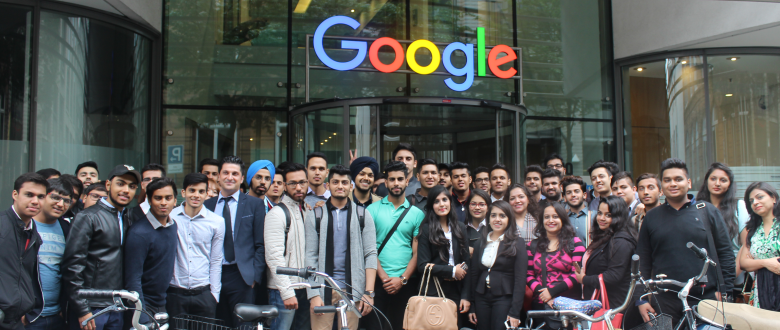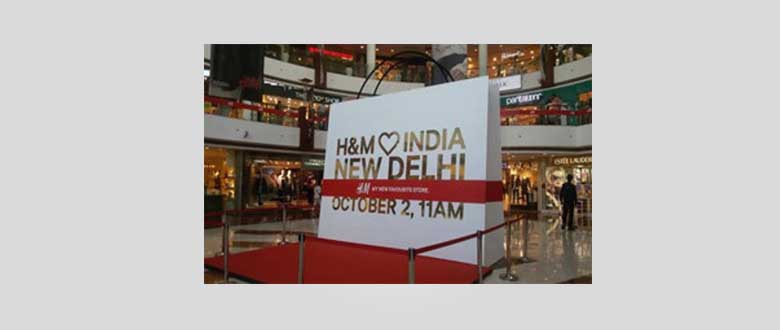There’s a big world beyond the IILM campus, and a student can experience it through the golden opportunity given by IILM Undergraduate Business School as Global Study Program.
In order to be a responsible leader in today’s time students need to have first hand experience of cultures, organizations, and business practices around the world. In order to cater to this requirement IILM’s global offerings encompass a mandatory 3 week global study program.
This program was organized for the first time for our stage 1 students of 2015 – 18 batch. Based on the preferences, students were taken to International School of Management, at Hamburg, Germany. The entire program was sponsored by IILM and the partner school except that the students had to bear extra expenditures like food, travelling etc.
On the 8th of August 2016, 50 students collectively from both Lodhi Road and Gurgaon campus boarded Emirates flight for Hamburg, Germany along with the three faculty members. Ms Philipa , International Office Manager, ISM received us at the airport along with a coach to facilitate commutation from airport to the A&O Hostel where the students were given accommodation. While the travel itself, the students were handed over the ISD sim cards so that they can make calls to their parents and inform them about their safe arrival at Hamburg.
In addition with this the students were also explained about the rules and regulations to be followed at the hostel. Each and every student was provided on the same day with a train/bus card to travel nearby location for free of cost.
The students were also provided with a unique identity card inorder to seek entry into International School of Management, Hamburg, Germany.
This three weeks program was a blend of two modules, industry visits and cultural immersions. A highlight of this interesting curriculum is here.
1. Strategic Management: Prof. Qeis Kamran
The course covered the basics of strategic management, key elements, current trends in strategy, strategy thinking styles, the role of resources and knowledge, branding, decision making, organizational politics, international and collaborative strategies, strategy and innovation. Module also introduced Prof. Kamran’s six forces model which challenged Porter’s five forces. This module was delivered through lectures, case study and visit to Google. The students appreciated the delivery of the course.
The professor made use of case studies such as Volkswagen’s Clean Diesel Dilemma; University of Michigan; WDI Publishing, inorder to
2. Entrepreneurship & Innovation – Prof. A. Schonknecht
Course content included entrepreneurship and business development, innovation and business ideas, innovation strategy, business model development and business plan development. The module was delivered through lecture mode with the help of ppt.
Industrial and Cultural Visits in Germany
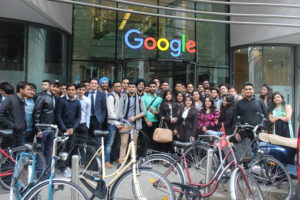 Learning Outcome: The students were able to relate the concepts learnt in the classroom. They learnt about the various strategies adopted by Google. This visit was a part of the module Strategic Management. A pre and post briefing reinforced the concepts delivered.
Learning Outcome: The students were able to relate the concepts learnt in the classroom. They learnt about the various strategies adopted by Google. This visit was a part of the module Strategic Management. A pre and post briefing reinforced the concepts delivered.
Feedback: Well appreciated by the students.
Lufthansa Technik
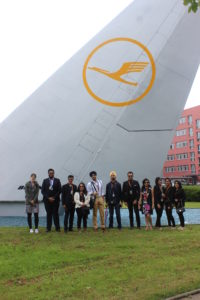 Learning Outcome: The students were able to witness the manufacturing and servicing of airplanes and learnt about the various ways a product is modified keeping in consideration the customer’s requirements.
Learning Outcome: The students were able to witness the manufacturing and servicing of airplanes and learnt about the various ways a product is modified keeping in consideration the customer’s requirements.
Feedback: The students could not relate very well to the visit as it was more apt for engineering students. It also became tiring for students to walk around the entire facility spread in acres. For all visits, transport arrangements must be looked into in the future programs.
Hamburg City Tour:
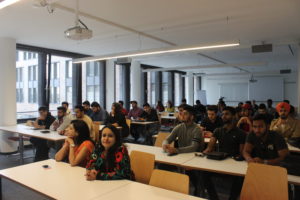 Learning Outcome: The students were informed and explained about the Hamburg city’s heritage and culture.
Learning Outcome: The students were informed and explained about the Hamburg city’s heritage and culture.
Feedback: Liked and appreciated by the students
Hamburg Harbor:
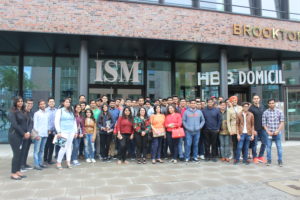 Learning Outcome: The students got to experience Germany’s largest port – its gateway to the world. They were able to understand the significance of the port in Germany’s economy.
Learning Outcome: The students got to experience Germany’s largest port – its gateway to the world. They were able to understand the significance of the port in Germany’s economy.
Feedback: Great visit, fully enjoyed by the students.
Overall the students had a great 360 degree experience in terms of classroom learning, industry visits, cultural immersions, hostel lifestyle, traveling using public transport etc.


